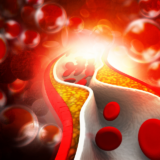Best Foods for Heart









Foods for Heart
A healthy diet and lifestyle are your best weapons to fight cardiovascular disease. It’s not as hard as you may think! Remember, it’s the overall pattern of your choices that counts. Although you might know that eating certain foods can increase your heart disease risk, it’s often tough to change your eating habits. Once you know which foods to eat more of and which foods to limit, you’ll be on your way toward a heart-healthy diet.
Make the simple steps below part of your life for long-term benefits to your health and your heart
Control your portion size
How much you eat is just as important as what you eat. Overloading your plate, taking seconds and eating until you feel stuffed can lead to eating more calories than you should. Use a small plate or bowl to help control your portions.
Eat more vegetables and fruits
Vegetables and fruits are good sources of vitamins and minerals and, are also low in calories and rich in dietary fiber. Vegetables and fruits, like other plants or plant-based foods, contain substances that may help prevent cardiovascular disease. Eating more fruits and vegetables may help you cut back on higher calorie foods, such as meat and snack foods.
Select whole grains
Whole grains are good sources of fiber and other nutrients that play a role in regulating blood pressure and heart health. You can increase the amount of whole grains in a heart-healthy diet by making simple substitutions for refined grain products.
Limit unhealthy fats
Limiting how much trans fats you eat is an important step to reduce your blood cholesterol and lower your risk of coronary artery disease. A high blood cholesterol level can lead to a buildup of plaques in your arteries, called atherosclerosis, which can increase your risk of heart attack and stroke. The trans fats are bad for you, polyunsaturated and monounsaturated fats are good for you, and saturated fats somewhere in-between
Choose low-fat protein sources
Lean meat, poultry and fish, low-fat dairy products, and eggs are some of your best sources of protein. Fish is good alternative to high-fat meats. Certain types of fish are rich in omega-3 fatty acids, which can lower blood fats called triglycerides. You’ll find the highest amounts of omega-3 fatty acids in cold-water fish, such as salmon, mackerel and herring. Other sources are flaxseed, walnuts, soybeans and canola oil. Legumes — beans, peas and lentils — also are good sources of protein and contain less fat and no cholesterol, making them good substitutes for meat.
Reduce the sodium in your food
Eating a lot of sodium can contribute to high blood pressure, a risk factor for cardiovascular disease. Reducing sodium is an important part of a heart-healthy diet. Although reducing the amount of salt you add to food at the table or while cooking is a good first step, much of the salt you eat comes from canned or processed foods.
Foods to consider for a healthy heart
Omega 3 Fatty Acids
A top food for heart health, it’s rich in omega-3s. Omega-3s are healthy fats that may lessen the risk of heart rhythm disorders and lower blood pressure. They may also lower triglycerides and curb inflammation. Fatty fish like salmon, mackerel, sardines and tuna are loaded with omega-3 fatty acids. Salmons are super rich in omega3 and can effectively reduce blood pressure and keep clotting at bay. Studies suggest that 2 servings per week of salmon may reduce the risk of heart attack by one third. Apart from omega3 fatty acids, salmons are rich in vitamin B, potassium and selenium as well. If you don’t eat much seafood, fish oil is another option for getting your daily dose of omega-3 fatty acids.
Foods that is rich in Omega 3 Fatty Acids
- Salmon
- Mackerel
- Sardines
- Oysters
- Flax Seeds
- Chia Seeds
- Hemp Seeds
- Walnuts
- Soybeans
- Avocado
Avocados
Avocados are power packed with hordes of nutrients such as vitamins C,E,K, B5,B6 & Folic Acid, anti-inflammatory and cholesterol reducing phytosterols, valuable minerals like Manganese, Copper, Magnesium and Potassium, good amount of dietary fibers and are rich in heart healthy Monounsaturated and polyunsaturated Fats, which have been linked to reduced levels of cholesterol and a lower risk of heart disease. The avocado helps in lowering the “bad” LDL cholesterol, including lower levels of small, dense LDL cholesterol, which are believed to significantly raise the risk of heart disease. Avocados are also rich in potassium, a nutrient that’s essential to heart health. Avocados offer nearly 20 vitamins and minerals in every serving, including potassium (which helps control blood pressure), lutein (which is good for your eyes), and folate (which is crucial for cell repair and during pregnancy). Avocados are a good source of B vitamins, which help you fight off disease and infection. They also give you vitamins C and E, plus natural plant chemicals that may help prevent cancer. Avocado is incredibly nutritious, delicious and easy to incorporate in your diet. You can add them to salads and various recipes or simply scoop them out with a spoon and eat them plain. They have a creamy, rich, fatty texture and blend well with other ingredients.
Walnuts
Walnuts are a great source of fiber and micro-nutrients like magnesium, copper and manganese. Incorporating a few servings of walnuts in your diet can help protect against heart disease. Eating walnuts can reduce “bad” LDL cholesterol, lower diastolic blood pressure, decrease oxidative stress and inflammation. Walnuts are also a good source of omega-3 fats.
Here are few health benefits of walnuts
- Improve your memory and prevent depression.
- Supports good brain function.
- Grow healthy, strong hair and nails.
- Supports male reproductive health
- Promotes a Healthy Gut
- Supports weight control as it helps control your appetite
- Give yourself an energy boost.
- Rich in Antioxidants
Leafy Green Vegetables
Leafy green vegetables like spinach, kale, Swiss chard and collard greens are well-known for their wealth of vitamins, minerals and antioxidants. In particular, they’re a great source of vitamin K, which helps protect your arteries and promote proper blood clotting. They’re also high in dietary nitrates, which have been shown to reduce blood pressure, decrease arterial stiffness and improve the function of cells lining the blood vessels. Increasing your intake of leafy green vegetables can lower risk of heart disease. Green leafy vegetables contain phenols, polyphenols and conventional antioxidant nutrients like vitamin C and E. They also provide us with unique sulfur-containing compounds called glucosinolates. Packed with two powerful anti-inflammatory nutrients, vitamin K and ALA, these can fight oxidative stress and other chronic inflammations. These greens are a very good source of vitamins B2, B6, choline, B1, B3, folate, and pantothenic acid. A well-balanced intake of B vitamins has been associated with reduced risk of heart disease.
Garlic
For centuries, garlic has been used as a natural remedy to treat a variety of ailments. Garlic can help improve heart health due to the presence of a compound called allicin, which is believed to have a multitude of therapeutic effects. Taking garlic extract helps in reducing blood pressure. Garlic can reduce total cholesterol and “bad” LDL cholesterol in those with high cholesterol. Garlic extract can inhibit platelet buildup, which help reduce the risk of blood clots and stroke. Consume garlic raw, or crush it and let it be for a few minutes before cooking. This allows for the formation of allicin, maximizing its potential health benefits.
Berries
Strawberries, Blueberries, Blackberries and Raspberries are packed with important nutrients that play a central role in heart health. Berries are also rich in antioxidants like anthocyanins, which protect against the oxidative stress, help protect blood vessels and inflammation that contribute to the development of heart disease. Consuming a lot of berries can reduce several risk factors for heart disease. Eating berries daily improves the function of cells that line the blood vessels, which help control blood pressure and blood clotting. Berries can be a satisfying snack or delicious low-calorie dessert. Try adding a few different types to your diet to take advantage of their unique health benefits. Berries are full of heart-healthy phytonutrients and soluble fiber. Try these berries in cereal or yogurt.
Dark Chocolate
Dark chocolate is rich in antioxidants like flavonoids, which can help boost heart health. The higher the percentage of cocoa the better! The fiber and protein increase with higher cocoa and the sugar decreases. If you are a fan of milk chocolate be sure to pick a high-quality dark chocolate with a cocoa content of at least 70%, and moderate your intake to make the most of its heart-healthy benefits. Eating dark chocolate lowers the risk of heart disease. Cacao, the plant from which chocolate is made, is rich in flavanols, which can help lower blood pressure and prevent blood clots. It also acts as an antioxidant, which can keep “bad” cholesterol from sticking to your artery walls.
Yogurt
Higher intake of fermented dairy products like yogurt along with an overall heart healthy diet have been found to be associated with greater reductions in cardiovascular disease risk among hypertensive men and women. A consumption of 100g to 200g of yoghurt per day was associated with lower carotid artery thickness and higher HDL (good) cholesterol levels. Certain strains of probiotic bacteria (lactobacillus casei, for example) have been shown to improve blood triglyceride levels and lower blood pressure. A cup of yogurt provides a good dose of probiotics, calcium and healthy fats.
Almonds
Almonds are incredibly nutrient-dense, boasting a long list of vitamins and minerals that are crucial to heart health like healthy fats, protein, fiber, antioxidants, vitamins, minerals and are loaded with vitamin E, riboflavin, L-carnitine, magnesium, zinc, calcium and potassium. They are also a good source of heart-healthy monounsaturated fats and fiber, two important nutrients that can help protect against heart disease. Eating almonds is associated with higher levels of HDL “good” cholesterol, which can help reduce plaque buildup and keep your arteries clear. They significantly increase the amount of antioxidants in the blood stream, reduce blood pressure and improve blood flow. Almonds can effectively help in lowering LDL (bad cholesterol) due to the presence of fatty acids like Omega 3, oleic and palmitoleic acids. The magnesium present in almonds help in maintaining a stable rhythm of heart. Eating 50g of almonds per day can reduce the risk of heart disease by keeping blood vessels healthy. Remember that while almonds are very high in nutrients, they’re also high in calories. Measure your portions and moderate your intake if you’re trying to lose weight.
Olive Oil
Olive oil is packed with antioxidants, which can relieve inflammation and decrease the risk of chronic disease. It’s rich in monounsaturated fatty acids that provide improvements in heart health. Higher intake of olive oil is associated with lower systolic and diastolic blood pressure. It’s rich in heart-healthy antioxidants and protects your blood vessels. Take advantage of the many benefits of olive oil by drizzling it over cooked dishes or adding it to vinaigrette’s on salads, cooked veggies and sauces
Green Tea
Green tea has been associated with a number of health benefits, from increased fat burning to improved insulin sensitivity. It’s also brimming with polyphenols and catechins, which can act as antioxidants to prevent cell damage, reduce inflammation and protect the health of your heart. Higher intake of green tea catechins significantly lowers levels of LDL and total cholesterol. Green tea also decreases systolic and diastolic blood pressure and triglycerides
Beans
Beans contain resistant starch, which resists digestion and is fermented by the beneficial bacteria in your gut. The resistant starch can improve heart health by decreasing blood levels of triglycerides and cholesterol. Eating beans can reduce certain risk factors for heart disease; helps reduce blood pressure and inflammation, both of which are risk factors for heart disease. Beans are rich in fiber, protein, complex carbohydrates, folate and micro-nutrients like iron and potassium but contain very little fat and sugar; no sodium or trans fat. Incorporating beans in daily meals will lower blood glucose levels and reduce blood pressure, and thus alleviate the risk of heart diseases.
Whole Grains
Whole grains include all three nutrient-rich parts of the grain: germ, endosperm and bran. Common types of whole grains include whole wheat, brown rice, oats, rye, barley, buckwheat and quinoa. Compared to refined grains, whole grains are higher in fiber, which may help reduce “bad” LDL cholesterol and decrease the risk of heart disease. These whole grain foods are a good source of carbohydrates and fiber and are loaded with important vitamins, minerals and antioxidants. The soluble fiber beta-glucan helps reduce LDL cholesterol and blood sugar levels, promotes healthy gut bacteria and increases feelings of fullness. Its powerful antioxidants like Avenanthramides and Ferulic acid help reduce blood pressure and improve vascular blood flow. A warm bowl of oatmeal fills you up for hours, fights snack attacks, and helps keep blood sugar levels stable over time
Tomatoes
Tomatoes are loaded with lycopene, a natural plant pigment with powerful antioxidant properties. Antioxidants help neutralize harmful free radicals, preventing oxidative damage and inflammation, both of which can contribute to heart disease. Low blood levels of lycopene are linked to an increased risk of heart attack and stroke. Higher levels of HDL cholesterol can help remove excess cholesterol and plaque from the arteries to keep your heart healthy and protect against heart disease and stroke. Tomatoes also contain Folate which helps in maintaining homo-cysteine levels.
Pista
Pista or Pistachio nuts are high in protein, fiber, and antioxidants. They also boast several other important nutrients, including vitamin B6 and potassium. Pistachios are among the most antioxidant-rich nuts around. They’re high in lutein and zeaxanthin, both of which promote eye health. Pistachios contain fewer calories and more protein than most other nuts. Also, their essential amino acid content is higher than any other nut. In addition to being high in antioxidants, pistachios may lower blood cholesterol and improve blood pressure, thus lowering your risk of heart disease. Pistachios are high in fiber, which is good for your gut bacteria. Eating pistachios may increase the number of bacteria that produce beneficial short-chain fatty acids like butyrate. Pistachios have a low glycemic index, which might promote lower blood sugar levels.














4 comments
Jean Michelle
August 23, 2022 at 9:39 am
Good post. I learn something new and challenging on blogs I stumbleupon everyday. It will always be interesting to read articles from other authors and use a little something from their sites.
Victoria Agnel
August 27, 2022 at 4:30 am
I must thank you for the efforts youve put in writing this site. I really hope to check out the same high-grade content from you in the future as well. In fact, your creative writing abilities has inspired me to get my very own site now 😉
Ralf
September 7, 2022 at 12:30 pm
Some truly nice and utilitarian info on this internet site, also I believe the style and design holds wonderful features.
Hurriya Siddiqui
June 28, 2023 at 5:24 pm
Your explanations are easy to follow, even for beginners.